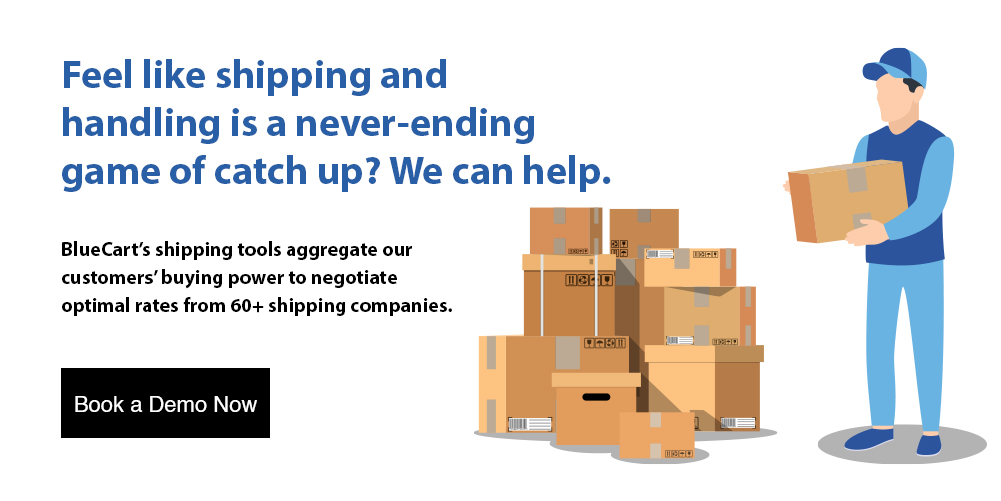Specialty cheeses have been garnering attention and appreciation from consumers worldwide, thanks to their unique flavors, textures, and stories. As a result, stocking and serving these delicacies can truly set you apart when opening a cheese shop.
Key Takeaway: In this blog post, we'll take you on a journey to discover the intricacies of strategic sourcing and importing specialty cheeses for your business. It does not matter if you run a restaurant business, a specialty grocery store, or a catering business service, we will guide you through the process, from finding reputable wholesale food distributors and suppliers to navigating the complexities of international trade.
By the time you've finished reading, you'll be well-equipped to curate an exceptional cheese selection that will delight the palates of your customers. As a result, developing your USP and distinguishing your business from the competition.
So, buckle up and join us on this exciting adventure to bring the finest, most exquisite specialty cheeses from around the world to your establishment. Let's get started!
What are Specialty Cheeses?
Specialty cheeses, also known as artisanal or gourmet cheeses, are typically made in small batches using traditional methods and high-quality ingredients. These cheeses often come from specific regions and are produced by skilled cheesemongers who follow time-honored techniques passed down through generations.
The characteristics that set specialty cheeses apart from their mass-produced counterparts include:
- Unique flavors and textures: Specialty cheeses often have complex flavor profiles and distinct textures that result from the use of specific dairy milk sources, production techniques, and aging processes.
- Limited production: Many specialty cheeses are produced in smaller quantities, which contributes to their exclusivity and artisanal appeal.
- Local ingredients: Specialty cheesemakers often use locally sourced milk and other ingredients, ensuring that their products reflect the unique characteristics of their region.
- Traditional techniques: Artisanal cheesemakers often employ traditional methods of dairy farming and production, such as hand-milking, hand-molding, and natural aging, which contribute to the authenticity and quality of the final product.
- Terroir: Specialty cheeses often embody the concept of terroir, which refers to the unique combination of environmental factors (such as climate, soil, and geography) that influence the flavor and characteristics of a product.

Types of Specialty Cheeses
Specialty cheeses can be broadly classified into four main categories, based on their texture and aging process:
- Soft Cheese: These cheeses have a high moisture content and are typically creamy, spreadable, and mild in flavor. Examples include Brie, Camembert, and chevre (goat cheese).
- Semi-Soft Cheese: This category includes cheeses with a slightly firmer texture than soft cheeses but still maintain a level of creaminess. Examples of semi-soft cheeses are Gouda, Havarti, and Fontina.
- Hard Cheese: These cheeses have a lower moisture content, resulting in a firm, dense texture. They are typically aged for a longer period, which contributes to their strong, complex flavors. Examples of hard cheeses include Parmigiano-Reggiano, Manchego, and aged cheddar.
- Blue Cheese: Characterized by distinctive blue or green veins of mold, blue cheeses have a bold, pungent flavor and a creamy, crumbly texture. Examples of blue cheeses are Roquefort, Gorgonzola, and Stilton.
How to Source Specialty Cheeses
So, how do you source specialty cheese exactly? Let’s look at some actionable insights into identifying potential suppliers, evaluating their offerings, and navigating the intricacies of importing these artisanal products.
By following these steps, you can elevate your business offerings and provide an exceptional culinary experience for your customers through the delightful world of specialty cheeses.
- Identifying Potential Suppliers
- Online Research: Utilize search engines, industry-specific websites, and social commerce platforms to find potential suppliers of specialty cheeses. Look for reviews, testimonials, and product listings to gather information on the reputation and product offerings of each supplier.
- Industry Events and Trade Shows: Attend food industry events, trade shows, and conferences focused on specialty foods to meet and network with cheesemakers and wholesale distribution companies. These events provide an opportunity to sample products, discuss business collaborations, and learn about new trends in the market.
- Referrals from Industry Peers: Consult with colleagues, industry peers, and fellow business owners to gather recommendations for trusted suppliers. This method can help you find suppliers with proven track records and positive experiences with other businesses in your industry.
- Evaluating Suppliers
- Product Quality: Request samples from potential suppliers to assess the quality of their products. Taste and compare the cheeses, paying close attention to flavor, texture, and appearance, to ensure that they meet your business's standards.
- Pricing and Payment Terms: Compare the pricing structures and payment terms of various suppliers to ensure that they align with your budget and cash flow requirements. Look for competitive pricing without compromising on quality.
- Production Capacity and Lead Times: Assess the production capacity of each supplier to ensure that they can meet your business's demand. Also, consider their lead times to guarantee timely deliveries, especially during peak seasons or when planning promotional events.
- Supplier's Certifications and Adherence to Regulations: Verify that potential suppliers hold relevant certifications, such as HACCP, ISO, or organic certifications, and comply with food safety regulations and import/export requirements. This will help ensure the quality and safety of the products you source.
- Building Relationships with Suppliers
- Communication and Negotiation: Establish open lines of communication with your suppliers to discuss product specifications, pricing, delivery schedules, and other business-related matters. Use your negotiation skills to secure favorable terms and conditions that benefit both parties.
- Site Visits: Whenever possible, visit the production facilities of your potential suppliers to gain first-hand insight into their manufacturing processes, quality control measures, and overall working environment. This can help you build trust and ensure that you are partnering with a reliable and ethical supplier.
- Collaboration on Product Development: Engage in collaborative product development with your suppliers to create unique, customized cheeses tailored to your business's needs and target market. This can help differentiate your offerings, strengthen your business relationship, and foster a long-term partnership with your suppliers.

How to Import Specialty Cheeses
The demand for unique, artisanal cheeses is on an upward trend. Cheesemongers and businesses in the food and cheese industry can seize this opportunity to distinguish themselves by sourcing and importing exceptional cheeses from around the globe.
Importing specialty cheeses, however, can be a complex and challenging process. The process requires a thorough understanding of regulations, logistics, and supplier relationships.
Here are some import regulations and requirements to consider when importing cheese:
- Food Safety System and Standards: Ensure that the specialty cheeses you import comply with the food safety standards and regulations of your country. This may include compliance with guidelines set by organizations such as the FDA (United States) or the European Food Safety Authority (European Union).
- Labeling Requirements: Imported specialty cheeses must meet the labeling requirements of your country, which may include information about the product's name, ingredients, nutritional information, allergens, country of origin, and cheese storage instructions.
- Import Licenses and Permits: Determine whether your business requires any special wholesale licenses or permits to import specialty cheeses. This may include import licenses, health certificates, or veterinary inspections, depending on your country's regulations.
Tips on Managing Logistics
Logistics and supply chain management is an important aspect of importing wholesale cheese. Here are some tips on getting it done right:
- Temperature-Controlled Shipping: As specialty cheeses are perishable, it is crucial to use temperature-controlled shipping and handling methods to maintain their quality during transportation. Work with reputable logistics companies experienced in handling perishable goods to ensure the proper storage and handling of your imported cheeses. You can also research cheese equipment and cheese packaging materials that can make shipping easier.
- Customs Clearance: Familiarize yourself with the customs clearance process and documentation required for importing specialty cheeses. This may include commercial invoices, packing lists, certificates of origin, and any other documents necessary to prove compliance with import regulations.
- Tracking and Monitoring Shipments: Use tracking systems provided by your logistics partner to monitor the progress of your shipments. This will help you anticipate and address any potential delays or issues, ensuring that your imported cheeses arrive in the best possible condition.
How to Calculate Import and Cheese Shipping Costs
When importing specialty cheeses for your business, understanding the various costs involved in the process is crucial for effective planning and budgeting. From import duties and taxes to shipping and handling fees, these expenses can significantly impact your overall profit margins.
By accurately estimating these costs, you can price your products competitively, maintain a healthy cash flow, and ensure the financial sustainability of your business.
Watch out for the following:
- Tariffs and Taxes: Research and factor in any applicable tariffs, taxes, or import duties that may be levied on your imported specialty cheeses. These costs will vary depending on the country of origin and the specific type of cheese being imported.
- Shipping and Handling Fees: Calculate the costs associated with shipping and handling your imported specialty cheeses, including transportation fees, temperature-controlled storage, and any additional services required to maintain the quality of the products during transit.
- Insurance and Other Fees: Consider purchasing insurance to protect your shipment against loss, damage, or theft during transportation. Additionally, factor in any other fees that may be associated with importing specialty cheeses, such as inspection fees, storage fees, or brokerage fees.

Frequently Asked Questions About Sourcing Specialty Cheeses
What are Specialty Cheeses?
Specialty cheeses, also known as artisanal or gourmet cheeses, are high-quality cheeses typically made in small batches using traditional methods and locally sourced ingredients. These cheeses are known for their unique flavors, textures, and characteristics that set them apart from mass-produced varieties.
What is Cheese Gourmet?
Cheese gourmet refers to the appreciation and enjoyment of fine, high-quality cheeses, often focusing on artisanal, rare, or region-specific products. Gourmet cheeses are sought after for their unique flavors, textures, and the craftsmanship involved in their production.
What are the Categories of Cheese?
Cheeses can be broadly categorized based on their texture and aging process. The main categories are:
- Soft Cheese
- Semi-Soft Cheese
- Hard Cheese
- Blue Cheese
What Cheese has not Ripened or Aged?
Fresh cheese, also known as unripened cheese, is a type of cheese that has not been aged or ripened. These cheeses typically have a high moisture content, mild flavor, and soft texture. Examples of fresh cheeses include ricotta, queso fresco, and feta.
What are the 7 Families of Cheese?
The seven families of cheese, based on a classification by the French Cheese Guide, are:
- Fresh Cheese (Fromage Frais)
- Soft Cheese with Natural Rind (Fromage à Pâte Molle et Croûte Fleurie)
- Soft Cheese with Washed Rind (Fromage à Pâte Molle et Croûte Lavée)
- Pressed Cheese (Fromage à Pâte Pressée)
- Pressed and Cooked Cheese (Fromage à Pâte Pressée et Cuite)
- Blue Cheese (Fromage à Pâte Persillée)
- Goat Cheese (Fromage de Chèvre)
What’s Your Unique Cheese Selling Point
To succeed in the specialty cheese market, it is essential to focus on strategic sourcing and importing high-quality products that meet the expectations of discerning consumers. By sourcing and importing a diverse range of specialty cheeses, businesses can create a unique product lineup that sets them apart from competitors.
This differentiation can help businesses establish themselves as industry leaders in the specialty cheese market. Ultimately leading to increased sales, customer retention, customer satisfaction, and long-term success.